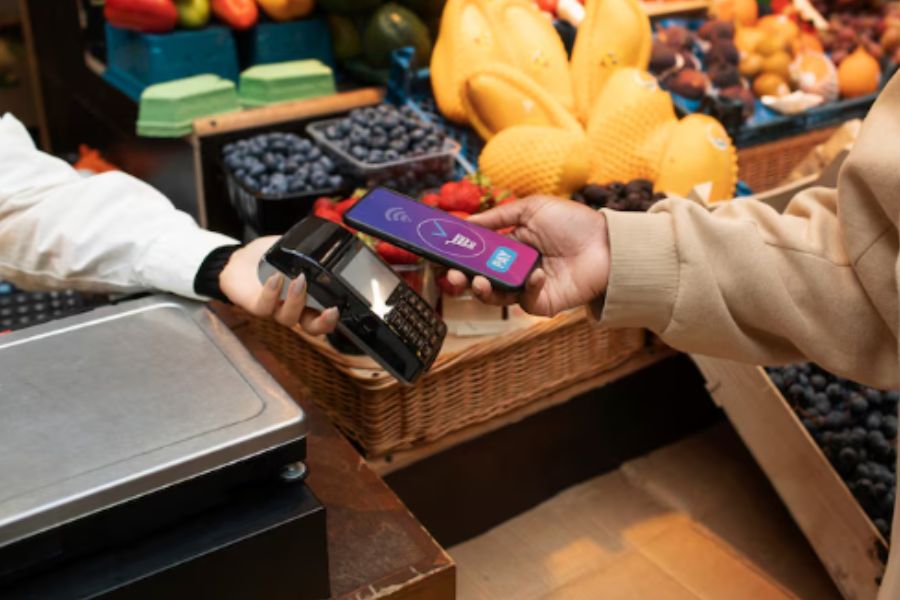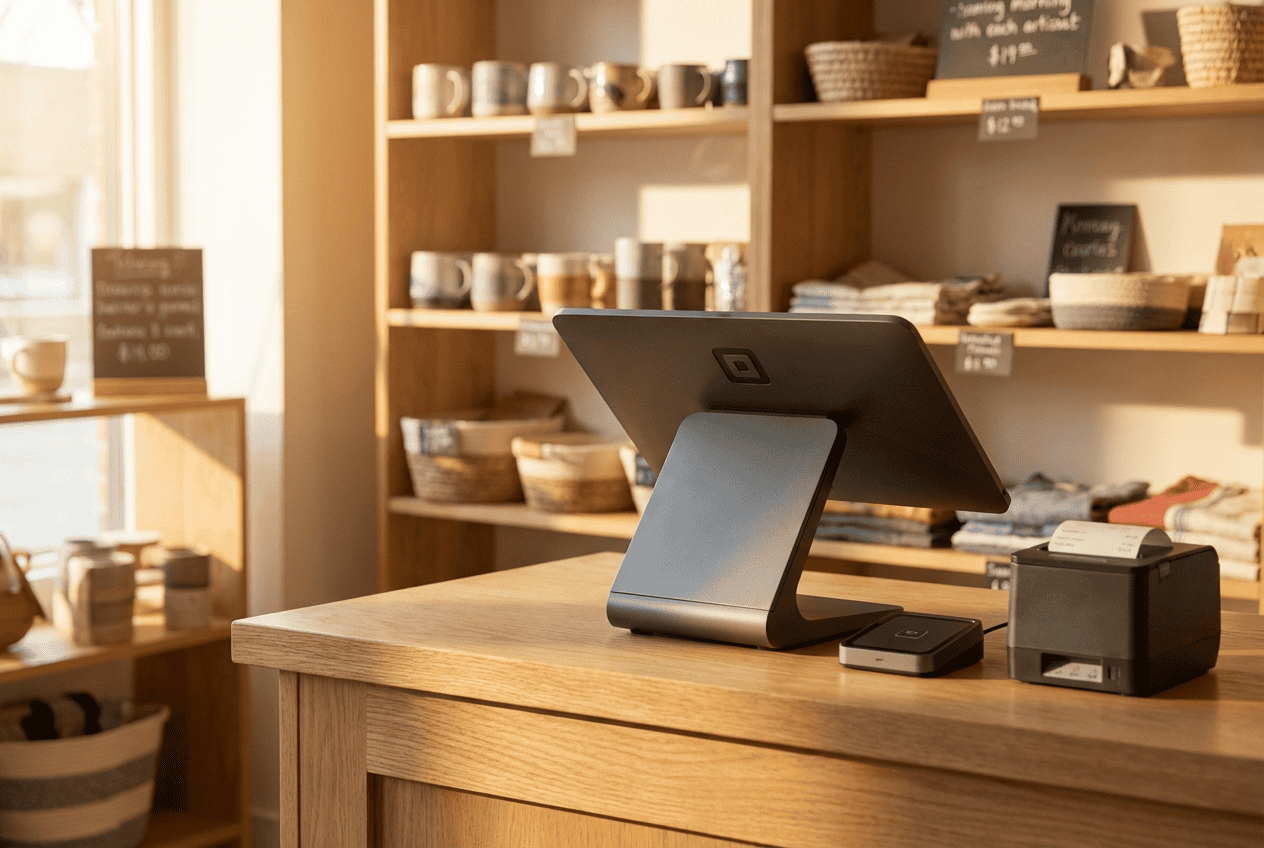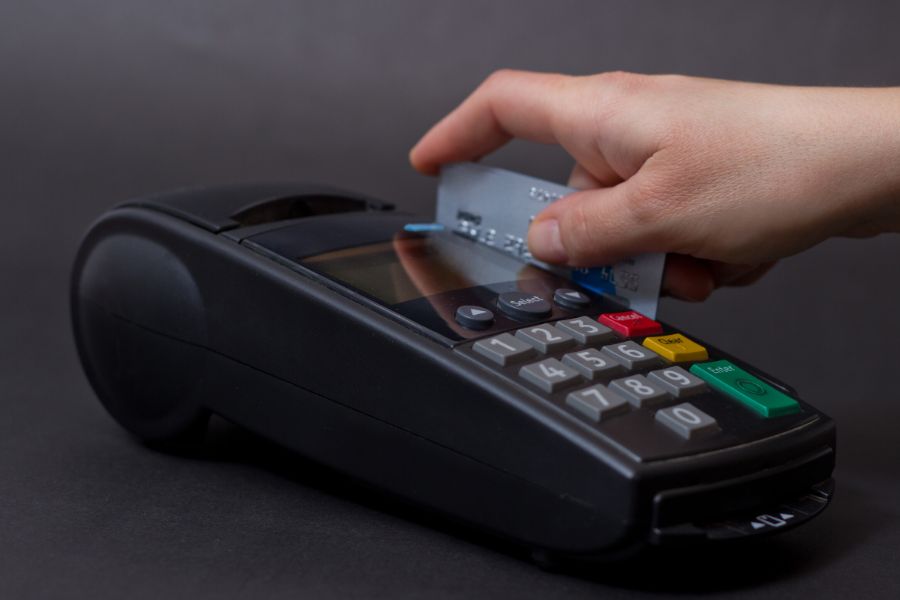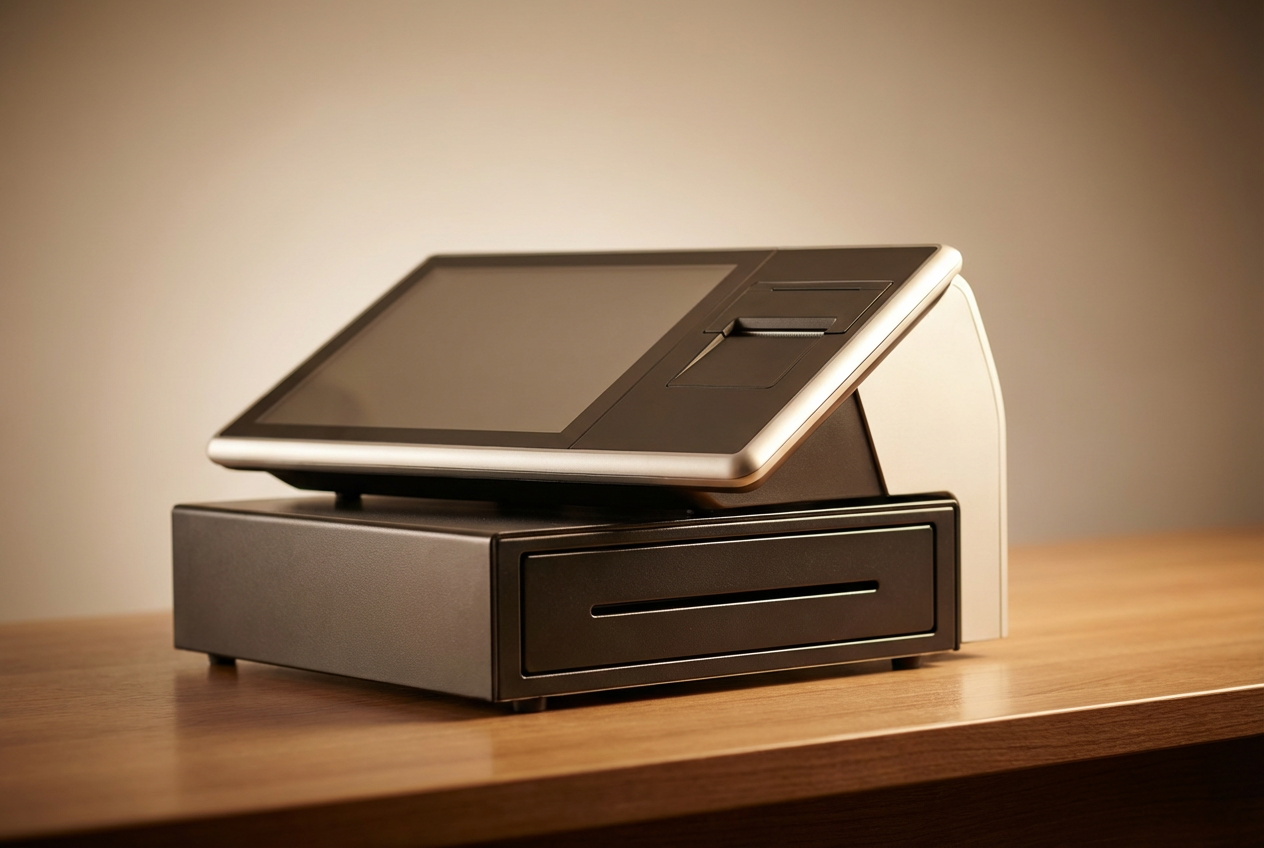Handling multiple vendors under one roof is tricky. You’ve got diverse products, different pricing rules, and plenty of moving parts. Customers don’t care. They just want a smooth shopping experience. A multi vendor POS system helps retailers pull this off. But what exactly does it do, and why do businesses juggling multiple vendors need one?
Highlights:
- Multi vendor businesses need a specialized POS to manage separate inventories, handle vendor-specific commissions, and streamline complex transactions across different suppliers.
- When buying a multi vendor POS software, focus on real-time inventory syncing, flexible commission settings, vendor-specific reporting, and seamless integration with online marketplaces.
What Is a Multi Vendor POS System?
Think of it as the ‘brain’ behind marketplaces, food courts, or shared retail spaces. It manages products, sales, and customers for multiple vendors. All within one system. Unlike regular POS setups designed for single sellers, a multi vendor POS keeps everything organized for multiple brands or shops.
It’s the glue holding operations together, making sure payments, promotions, and customer interactions run smoothly, whether the vendor sells coffee or clothing. Each vendor still retains control over their own information, but the main operator has a clear view of everything from a single dashboard.
Why Do Multi Vendor Businesses Need a Specialized POS?
Running several brands together involves juggling complex pricing, promotions, inventory, and commissions across multiple vendors. Without a specialized system, chaos quickly creeps in: stock errors, slow checkouts, and unhappy customers.
A good multi vendor POS system puts a lid on the chaos. It gives each vendor independence to set prices or promotions but keeps everything synced centrally. Customers can buy from any vendor smoothly, using shared payment methods like loyalty points or gift cards. No confusion, no mix-ups.
Multi vendor businesses like Yeti Cycles saw checkout speeds increase significantly after switching to a specialized POS system. Transactions got quicker, and overall sales conversion jumped by 44% thanks to real-time data integration between online and offline stores.
Must-Have Features in a Multi Vendor POS System
These are the essentials to look for when choosing the right multi vendor POS:
Shared Loyalty, One Membership
Customers shouldn’t need separate loyalty cards for each vendor. A good system offers one unified loyalty program. Customers earn and spend points across vendors seamlessly, boosting repeat visits and making shopping easy.
Centralized Gift Cards
►►► Optimal solution set for businesses: Multi store POS, Next-gen POS, Inventory Management Software (MSI), Self Service, Automation, Backorders

Gift cards become a headache if every vendor handles them differently. A central gift card system simplifies the process. Customers can load a single card and spend it with any vendor within the system. The vendor gets paid instantly, and customers avoid juggling multiple cards.
Live Data, No Guesswork
Real-time inventory and sales data are non-negotiable. With live data, vendors see instantly what sells and what’s running low. Global Vapors, a multi vendor vape retailer, saw a 50% improvement in order entry speed after switching to a real-time POS system. Less guessing, more selling.
Role-Specific Access for Each Vendor
Vendors need freedom but also clear boundaries. A specialized multi vendor POS system provides role-specific access. Each vendor controls their own products, prices, and promotions without messing things up for others. The main operator keeps oversight, making sure everything’s running smoothly.
Built-In Commission Tools
No one likes manual commission calculations. Built-in commission tracking lets operators set different rates and payout methods for each vendor. Commissions are calculated automatically, meaning fewer mistakes and quicker payouts.
Multi-Channel Ordering Options
Customers shop everywhere. In-store, online, mobile, or at kiosks. A strong multi vendor POS manages all these orders in one place. Inventory updates instantly, so if something sells online, it’s immediately reflected in-store.
Built for Growth
Your POS system shouldn’t slow you down as you expand. The right setup scales with your growth. Adding vendors, handling increased sales, or opening new locations shouldn’t be a hassle. The system adapts easily, keeping your operations smooth as your marketplace gets bigger.
Ready to discover the best options available today? Let’s explore the top 5 multi vendor POS systems.
Top 5 Multi Vendor POS Systems for 2025
ConnectPOS
When you’re dealing with multiple vendors, complexity multiplies fast. ConnectPOS cuts through this with simple, clear, and effective tools built specifically for businesses juggling many brands. Its secret? Real-time synchronization, easy scalability, and powerful tools for managing vendor-specific operations.
ConnectPOS doesn’t just promise smoother operations. It delivers. Yeti Cycles, an outdoor bike retailer, experienced a 44% boost in sales conversions after shifting to ConnectPOS. Transactions got quicker, data became accurate, and staff were freed up to focus on customers rather than tech headaches.
Key features that set ConnectPOS apart:
- Real-Time Data Sync: Everything updates instantly between online and offline stores. No lags, no delays.
- Centralized Gift Cards: Gift cards loaded in one place work seamlessly across vendors.
- Unified Loyalty Program: One membership, many vendors. Customers accumulate points and redeem them anywhere within your multi vendor marketplace.
- Built-In Commission Tools: Easily set, track, and pay out vendor commissions automatically.
- Role-Based Access Control: Vendors manage their inventory, pricing, and promotions independently. The main operator retains oversight to ensure consistency.
- Multiple Ordering Channels: Supports mobile, online, in-store kiosks, and QR-based ordering from a unified interface.
- Offline Capability: Keeps selling even without internet, syncing data as soon as connectivity returns.
- Tailored B2B Functionality: Bulk orders, wholesale pricing, and complex promotions handled seamlessly.
- Flexible Payment Integration: Supports Authorize.net, Stripe, PayPal, and more, giving customers the convenience they expect.
- Robust Inventory Management: Multi-location stock tracking and real-time updates keep inventory accurate across channels.
- Customer Data Centralization: Single customer database accessible to all vendors, streamlining returns, service, and personalized offers.
- Scalable Architecture: Easily add new vendors, products, and locations without system slowdown or disruption.
- Comprehensive Reporting: Generate reports at vendor-level or marketplace-wide to make data-driven decisions quickly. Check out our Report & Analytics features.
- Quick Onboarding & Strong Support: Rapid implementation, training, and continuous support help your team stay productive and your customers happy.
ConnectPOS is crafted specifically to handle the complexities of multi vendor setups. This saves businesses significant operational costs and headaches. Smoke Arsenal, a Canadian wholesaler, reduced their service costs by 50% with ConnectPOS, thanks to smoother workflows and accurate, real-time data synchronization.
If your business relies on managing multiple brands under one system, ConnectPOS brings clarity, control, and convenience like no other.
Shopify POS
Shopify POS offers a straightforward solution for businesses already familiar with Shopify’s eCommerce platform. Perfectly suited for smaller-scale multi vendor setups, Shopify POS integrates smoothly with online stores, providing easy management across digital and physical retail spaces.
Shopify POS Features:
- Easy-to-use mobile interface
- Integrated online and offline inventory management
- Unified reporting and analytics
- Robust third-party app marketplace for additional tools
While Shopify POS is simple and reliable, it may lack deeper customization options for complex multi vendor needs compared to more specialized systems.
Square POS
Square POS is a popular choice among small to medium-sized marketplaces because of its user-friendly design and affordable pricing. Square makes it easy to get started quickly without significant upfront investments.
Square POS Features:
- Simple, flat-rate payment processing
- Easy-to-use interface suitable for beginners
- Mobile and countertop options available
- Basic inventory and order tracking
Square POS is ideal for businesses looking for simplicity over complexity, but may fall short when handling more sophisticated multi vendor requirements, such as nuanced pricing and detailed commission tracking.
Lightspeed POS
Lightspeed POS excels in providing strong inventory management and multi-location support, making it an attractive choice for growing marketplaces. Its strengths lie in its ability to manage diverse products efficiently.
Lightspeed POS Features:
- Detailed, real-time inventory tracking
- Advanced reporting and analytics
- Multi-store inventory transfers
- Integrated loyalty programs and CRM features
Lightspeed POS is robust enough for growth-focused marketplaces, though it doesn’t offer the same degree of tailored multi vendor management features, particularly around vendor-specific promotions and payments.
Chowbus POS
For food courts or marketplaces that primarily handle food vendors, Chowbus POS is specifically tailored for these settings. It simplifies complex foodservice operations involving multiple independent vendors.
Chowbus POS Features:
- Unified ordering across multiple food vendors
- Shared payment options like gift cards and loyalty points
- Automatic royalty and commission calculations
- Fast transactions and minimal downtime in high-traffic environments
While Chowbus excels in food-specific scenarios, its specialization limits its applicability outside food and beverage markets, making it less flexible, more versatile approach.
Steps to Choose the Right Multi Vendor POS System
Finding the right multi vendor POS system isn’t just about choosing the latest or most popular option. It has to match your specific needs. Here’s a practical approach:
1. Nail Down What You Really Need
Start by listing your non-negotiables. Are shared loyalty programs and centralized gift cards essential? Is real-time inventory tracking critical for your vendors? Knowing exactly what matters most will narrow your search, saving you time and headaches later.
2. Look at Who Built the System
Check the track record of the provider behind the POS system. Experienced providers, like ConnectPOS, build their products based on real-world insights, making our solutions reliable and intuitive.
3. Make Sure It Plays Nice With Other Tools
No POS system exists in isolation. It needs to integrate smoothly with your existing tools like eCommerce platforms, accounting software, and payment gateways. Select a system that is flexible enough to integrate seamlessly with your existing setup.
4. Ask for a Real Demo
Don’t just rely on websites or brochures. Ask providers for a demo and see the POS in action. Bring your vendors along, get their input, and observe how the system handles real scenarios. Make sure it genuinely fits your workflow before committing.
5. Don’t Compromise on Security or Uptime
Security breaches and system downtime can seriously damage your business. Prioritize POS systems with strong security credentials and reliable uptime. ConnectPOS, for example, ensures continuous operations with automatic offline capabilities, keeping transactions flowing smoothly, even without internet access.
FAQs: Multi-Vendor POS Systems
1. Can vendors control their own settings?
Yes. The best systems let each vendor manage their own products, prices, and promotions without messing with others. Vendors have clear boundaries, yet maintain independence, exactly what a good multi vendor POS setup should offer.
2. Will one gift card work across all vendors?
It should. In a shared system like ConnectPOS, gift card balances update instantly and can be used anywhere inside the network. Customers love the convenience, and vendors appreciate the immediate transactions and streamlined payouts.
3. Is it hard to manage reports for so many vendors?
Not with the right system. Each vendor gets access to their own dashboard, and the main operator sees everything at once, clean and clear. Robust reporting features ensure easy tracking of sales, inventory, and performance, no matter how many vendors you manage.
Final Thoughts
A multi vendor POS system is your key to running a thriving, scalable, and hassle-free multi vendor business. Choose a system that meets your specific demands: real-time data, vendor independence, centralized gift cards, and reliable support.
ConnectPOS ticks all the boxes, giving you streamlined operations and satisfied customers. By choosing wisely today, you’re setting your marketplace up for sustainable growth tomorrow. Get in touch to see how ConnectPOS can power your multi vendor business.
►►► Optimal solution set for businesses: Shopify POS, Magento POS, BigCommerce POS, WooCommerce POS, NetSuite POS, E-Commerce POS




